|
I wish it were true that I could place my Bible under my pillow at night and wake up more spiritual. I wish it were true that when we came to faith in Christ, we never struggled with sin again. I wish it were true that by simply attending church, I would be guaranteed to never fail in my walk with Jesus. The reality is, none of these are true, and we know it all too well. We all struggle to walk with Jesus, and even fail Him at times. However, this does not mean that we shouldn’t make it our aim to follow Jesus and become more like Him. In fact, this is our aim! It is also one of our core values at CBC. Calling it a “core value” though, might be an understatement. I would dare to say, as I often have in the past, that the chief responsibility of the Christian is to grow in Christ-likeness. This is what we are about. We want to follow Jesus, becoming like Him, and help others do the same. That’s how we got the name “Christian” to begin with. People identified us as those who followed Christ and His ways.
In the world of five-dollar theological terms, we call this “progressive sanctification.” It’s the idea of progressively becoming more and more like Jesus in how we live. We have our ups and down, for sure, but overall, we want to become more like Him over the course of our lives. For the sake of simplicity and relatability, I like to refer to this doctrine as “modeling.” No, not the modeling like you see on a runway show with fancy designer wear! We’re talking about looking to Christ as a role-model that we seek to imitate or copy. Back in the summer of 2021, I taught a series on modeling Christ. I taught how we can model Christ as a church, in the family, in marriage, in all relationships, and in every circumstance. In this series, we discussed how we all look for other people to imitate and follow. We may call them role-models or mentors, but there’s something about them that we want to incorporate into the way we live. Don’t believe me? Just think of kids. They’re copycats! The mimic what they see and hear whether it’s good or bad. That’s scary as a parent! As a pastor, responsible for casting the vision for our church and for teaching, I’m always looking for exemplary characteristics in other churches or pastors that I want to imitate or incorporate into our church. Paul praised the Thessalonians for being such a church. He says, “You… became imitators of us and of the Lord” and as such, “you became a model to all the believers in Macedonia and Achaia” (1 Thess. 1:6-7). The Greek word Paul uses for imitate (mimetes), reminds us of the word mimic. It’s a term that could refer to an actor who mimics a person or role. It may remind us of the Mimic Octopus that can change colors to blend in with its environment or change its shape to look like a poisonous lionfish, sea snake, or jellyfish to prevent being eaten by predators. The word Paul uses for example (typos) could refer to a stamped pattern, image, or recreated model. As Christians, we want the Christlike virtues like love, joy, peace, patience, forgiveness, and grace to be recreated in us by His Spirit. When we truly follow Christ, people take notice. One man said, “We exist. We behave. Others notice.” They take mental notes about our faith and Jesus. They’re examining our lives and considering whether or not it would be helpful for them to follow Jesus as well. The atheistic philosopher, Friedrich Nietzsche, once said, “Show me that you are redeemed, and I’ll listen to you talk about your Redeemer.” He’s got a point. They understand we should live differently. So let’s show the world who Jesus is by how we live so that they too will find hope in Him. Ephesians 4:29-5:2 says, “Be kind to one another, tender-hearted, forgiving each other, just as God in Christ also has forgiven you. Therefore be imitators of God, as beloved children; and walk in love, just as Christ also loved you and gave Himself up for us.”
1 Comment
The following is an article by Pastor Justin published in the Chadron Record under "Minister's Moments." An audio version of this article can be found at the following link: https://podcasts.apple.com/us/podcast/cbc-devo-living-for-what-matters-forever/id1550004417?i=1000651451557
As I write this (Wednesday, March 27th), our community is losing two large buildings at the same time: the old Catholic school and an apartment complex. I was planning to write about Easter, but I woke up to a voicemail from a church member saying that their apartment was on fire. As I was on my way to see the fire, I received another message informing me that demolition had begun on the old school. I decided to drive by this crumbling structure as well. Recently, I’ve been reading a book about staying balanced in life by slowing down and spending extended times of solitude with the Lord. The book also talks about the need to break routine and just be “in the moment.” So, rather than simply driving by, I decided to pull over, get out of my car, and watch the demolition of this historic building. As I stood there, I kept thinking, “This has to be one of the largest and oldest buildings in town. This just isn’t something you see every day.” I also couldn’t help but think of all the memories that many people had growing up in or around that school. In fact, another bystander told me their own stories and while understanding, they were sad to see another piece of their childhood and Chadron’s history gone. However, the overwhelming thought was, “This is exactly why I want an eternal perspective on life. This is why I want to live for that which is going to matter forever.” Just like these two buildings, the temporal things that we live for—even life itself—can be taken from us in an instant. Jesus told a story about a man who once he finally had all he ever wanted, died, and left it all behind. He said, “So is the man who stores up treasure for himself and is not rich toward God” (Luke 12:21). The point is if we live for the here and now only, building our own little kingdoms, we’ll have to watch them burn and crumble in the end. Instead, we should view life with an eternal lens and live for God’s kingdom, seeking the inheritance that will never perish nor fade away (1 Peter 1:3-5). As C. T. Studd wrote, there’s “only one life, ‘twill soon be past. Only what’s done for Christ will last.” You can find an audio version of this blog at: https://www.podbean.com/ew/pb-mprmt-15a7f6b The core value we are highlighting for the month of March is sensitivity. What do we mean by sensitivity? We mean an awareness of, or sensible response to, the Lord’s promptings and leading in our lives. (1 Cor. 12:12; Gal. 5:25; Eph. 1:22; Col. 1:18; 1 Pet. 5:1-5). As individuals and as a church family, it’s important that we have an awareness of the direction that God is leading us and that He is with us in our endeavors. If we’re going to be attuned to the Lord and His leading in our lives, we must first have the Spirit of God dwelling in us to begin with. In 1 Corinthians 2:12-15, Paul shares about how the Spirit of God enables us to understand the things of God and the Word of God. Therefore, without the Spirit of God, we are natural men and not spiritual men. Natural men, who have not been born of the Spirit of God through faith in Christ, cannot grasp the spiritual things of God. So the Spirit of God is required to connect with God on His frequency and have a relationship with Him. This only happens when we place our faith in Jesus Christ and are born again spiritually speaking by the Spirit of God. Beyond receiving the Spirit of God, we need to "walk" with Him. Galatians 5:25 has always reminded me of a sensitive or receptive walk with God. Paul says, If we live by the Spirit let us also walk by the Spirit. When you go on a walk with someone, technically you’re only “with” them if you are beside them or close to them, often talking with them. If you are too far ahead of them or behind them, you are not really “with” them. Simple enough, right? The sensitive believer desires not to get ahead of God or to fail to respond to His promptings altogether, lagging behind God. Because of that, I like the way the ESV and NLT translate this verse. ESV: If we live by the Spirit, let us also keep in step with the Spirit. NLT: Since we are living by the Spirit, let us follow the Spirit’s leading in every part of our lives. How do I know if I’m keeping in step with the Spirit? Following His leading in our lives? Paul says the fruit of the Spirit will be evident in our lives (Gal. 5:16-26). Most people, however, want to know God’s personal will for their lives: How do I know if I should move to that town? Take another job? Marry this individual? Enter this ministry? I’ve been a follower of Christ long enough to admit that there is mystery involved in answering these personal questions and I’ve often been comforted by the missionary journeys of Paul. Even the Apostle Paul wrestled with the direction that the Spirit of God was leading him at times. Sometimes Paul was told exactly where to go and what to do. Sometimes he had no clue (!) and had to wait on God’s response. Sometimes he wanted to go one way and the Spirit of God said, “No.” Other times the Spirit clearly said, “Yes,” and he experienced great opposition! Sometimes he stayed longer in places that were insignificant and stayed a short time in significant places. So how did he know where to go and what to do? There simply is no pat answer because there was no pattern! You can’t calculate something that requires a living relationship. Some of it is simply an adventure with God! That being said, I do want to leave us with few practical steps to discerning God’s personal will for our lives: 1) If we want to know His personal will for our lives, we need to apply the clearly revealed general will of His written Word. His personal will will never violate His written will; 2) Praying and asking; 3) Seeking God through His Word; 4) Inquire wisdom from other mature believers in the body of Christ; ask them, “Is this wise?” 5) then pursuing it further and testing the waters. More than once a person has asked me, “How long do you plan to stay at Chadron Berean?” I always respond with, “I don’t plan on going anywhere. If God called me to live out the rest of my days in Chadron, I would be content with that. However, I always try to remain sensitive to the Lord’s leading. I never want to presume this is where I’ll always be.” In fact, in the past, when presented with opportunities to go elsewhere, I’ve prayed and I believe I was prompted to stay. But the only way you or I will know the answer to personal questions is through a real, living relationship with Him. So, should you take a chance and step out into that job or ministry that you think the Lord is leading you to do? That’s between you and the Lord. That may not be the answer you wanted, but I would give a note of encouragement: flourish or fail, grace is there like a net is there to catch the trapeze artist. You will learn from each fall and will get better. Proverbs 24:16, "For though the righteous fall seven times, they rise again." Praying that we will remain spiritually attuned to the Lord's direction in our lives,
Pastor Justin You can find an audio version of this blog at: https://podcasts.apple.com/us/podcast/cbc-devo-core-value-joy In recent years our church has had a theme to focus on each year. This year, however, instead of a specific theme I want to focus on core values. These core values developed over the past several years of preaching on subjects like spiritual gifts, modeling Christ, the Christian family, prayer, and worship. In compiling these subjects, we now have an extensive list of core values that I don’t want us to forget and that we need to apply if we’re going to continue being a healthy, effective, life-giving, and God-glorifying church. Each month I plan to focus on one core value through a devotional like this one. The core value will also appear in our bulletin. If interested, you can find the entire list of core values on our website. The first core value I want us to focus on is joy. Joy! It’s what everybody wants! In my first year as a pastor, my personal theme that year was “to serve the Lord with joy.” Followers of Jesus should be known for their joy. I’ve said many times before that if we can’t have fun and enjoy doing ministry, we won’t be doing much ministry at all! No one wants to be part of a church or any other group that has no joy. We can communicate all the right information to people but without a sense of joy, it will go over like a lead balloon. Who wants to hang around a bunch of cranks who argue and complain about everything or go through life as an expressionless Stoic? They make a terrible witness for the good news of the gospel! Joyful Christians, however, are winsome witnesses for Jesus. Charles Swindoll once said that long before people are attracted to our life of love, they are often attracted to our joy. Christ came to give us an abundant life (John 10:10) and in a very real sense, part of that “life” is a lightening of our spirits and learning to laugh at life! There are two principles that I would like to share to make sure we don’t lose our joy. The first one is that joy comes with abiding. In John 15:10-11 Jesus said, If you keep My commandments, you will abide in My love; just as I have kept My Father’s commandments and abide in His love. These things I have spoken to you so that My joy may be in you, and that your joy may be complete. Jesus teaches that we can abide in His love by keeping His commandments. The reason He tells us this is because He wants us to have an abundant life characterized by joy! He wants us to have His joy and for our joy to be complete. One translation says “so that your joy may overflow.” Sometimes people are tempted to view God’s commands as restrictions that steal their joy. God is looked at as a big bully in the sky who doesn’t want us to have any fun. On the contrary, for believers, it’s when we are living in sin against God that we lack this overflowing joy. God will not let His children enjoy what is not good for them. Therefore, overflowing joy only comes when we are walking in fellowship with the Lord and thus abiding in Him. The second principle is that we must be careful about where we find our joy. In Luke 10 when the disciples returned from their first short-term missionary journey, they returned with joy, saying, “Lord, even the demons are subject to us in Your name." Understandably, the disciples learned that serving Jesus can bring them immense joy. They were joyful about the way He used them and empowered them for the work of ministry. However, Jesus knows that ministry hardship lay ahead and they need something more secure to rest their joy in. He responded, saying, Do not rejoice in this, that the spirits are subject to you, but rejoice that your names are recorded in heaven. As heaven’s disciples, and especially for those in some sort of vocational ministry, we must beware of placing our joy in what we do (maybe it’s a ministry or job) or in what we possess (maybe it’s material possessions, influential qualities, or personal performance). Placing our joy in anything other than Christ and what He has done for us—formally inscribing our names in heaven’s book of life—is a recipe for disaster because everything other than Christ is temporary and fleeting or fluctuates up and down. If I place all my joy in my job but my job isn’t doing well, my joy won’t be doing well. If I place my joy in a fancy vehicle but then it gets wrecked or I am forced to sell it, my joy will go with it. Joy comes to stay when we recognize that Jesus is everything we need and because of Him, we are saved and going to heaven. If you seem to have misplaced your joy lately, I encourage you to pray with David in Psalm 51:12, Restore to me the joy of Your salvation and sustain me with a willing spirit. In Christ with you,
Pastor Justin 2/18/2024 The other day I watched a video showing the final, game winning touchdown play in a high school football matchup. The white team threw a touchdown pass and ended the game with a last-second win! Everyone on the white team immediately started celebrating with their teammates, jumping up and down with their hands in their air—all except one. One of the players on the white team was going around and speaking with players on the green team who had collapsed on the field in tears, heads down, grieving over the loss of a championship win. At first, you would assume that this player might be mocking the other team for losing the big game and rubbing it in their faces, but that wasn’t what he was doing at all. He was gently consoling them and speaking words of encouragement to them. One by one he lifted them up, shook their hands, and congratulated them on a hard-fought game. Immediately I thought, “That’s exactly what Paul is talking about in Ephesians 4:29.” Paul tells us to build others up—lift them up with our words! Ephesians 4:29 is in a section of Scripture where Paul is telling us how to live now that we are in Christ and how to have healthy, Christ-centered relationships that last. He is telling the Ephesians to lay aside the old self with the sin nature and put on the new self that is renewed in Christ and in righteousness. This renewing includes our words! There are words to put off and words to put on. He says, Let no unwholesome word proceed from your mouth, but only such a word as is good for edification according to the need of the moment, so that it will give grace to those who hear. The words to put off are unwholesome words. Some of your translations call them corrupt or foul words. These are all great depictions of the Greek word that is used in relation to fruit and rotten or decaying food (Mt. 7:17; 12:33). Rotten words like this are destructive and detrimental to others’ physical, mental, or moral well-being. Paul mentions some of what he has in mind in verse 31; they would include harsh words spoken in anger, coarse (unclean) jesting, degrading slander, and heartless malicious gossip. Speech like this doesn’t bring life—they destroy life. Some workplaces and homes are miserable, lacking peace and joy, because they are filled with rotten words. They deteriorate the spiritual well-being of others. Paul says to stop these words from coming out of our mouths.
The new way of speaking in Christ is mentioned second. These are the words we are to put on: edifying words. These words, as some of your translations say, are helpful for building others up. This is a construction term (edifying/edifice). These are words that strengthen or “make more able” someone else. Words like this give grace to those who hear. In Colossians 4:6, Paul says to season our words with salt. Salt, as you know, has a preservative effect on things. When I do taxidermy, I use to salt to preserve deer hides until they can get tanned. Salt kills the bacteria that would cause that deer hide to rot. It preserves the deer hide. I guess we could say the best way to fight against and prevent rot in our relationships is to use salty words—words of grace that build others up. Just this week I was the unexpected recipient of constructive words through text messaging. In the middle of this crazy week, I can’t tell you how much that brightened my day! It’s so much easier to use rotten words than constructive words. We find it so much easier to criticize than to commend and to put down than to praise! We could all use a little more encouragement and affirmation. Indeed, some peoples’ love language is words of affirmation! So how can you build someone up right now with your words? Make it your goal this week to build someone up each day. Life is better when we are better with our words. In Christ with you, Pastor Justin By now in this study on prayer, you’ve realized it’s not that easy to stay in prayer. We have enemies known as the flesh and the devil that want to keep us disconnected from God. They are the greatest adversaries to prayer. They like to whisper things like, “You’re too tired to pray. You don’t have time. Just skip it. You have better things to do anyway. Why should God take notice of your prayers anyway?” One of the things that I find distracting to my own prayer life, especially when spending any length of time in intercessory prayer, is the to-do list that comes to mind. It’s comforting to know that we are not the first people to struggle with prayer. The Apostle Peter, if you’ll remember, kept falling asleep on Jesus while praying in the garden of Gethsemane (Matt. 26:42-43). Jesus told Peter to watch and pray that he might not enter into temptation because though the spirit is willing, the flesh is weak (Mark 14:39). Peter clearly learned from his sleepy episode in the garden of Gethsemane, for in 1 Peter 4:7 he says, “Be of sound judgment and sober spirit for the purpose of prayer.” In 1 Peter 5:7 he says, “cast all your anxiety on Him, because He cares for you. Be of sober spirit, be on the alert. You adversary, the devil, prowls around like a roaring lion, seeking someone to devour.” Prayer is a connection with God that is crucial to living a victorious life over despair and temptation, so it’s important we learn to stay connected. I just want to give you a couple of personal tips that I use to stay connected during extended periods of prayer. As I share these two tips, understand that these are not something I use daily, nor are they tips that I think everyone must do. I just find them helpful at times. Take them or leave them. Staying Persistent Tip #1 - Pray with a pen handy.Like I said, when I pray, the to-do list starts to come to my mind, and I’m tempted to quit praying and get with it! First let me say, this is totally normal. It’s expected when we’re praying about things going on in our life and the things we are going to work on that day. Maybe, through prayer, we sense God’s prompting to do something that we hadn’t previously thought of. One of the things I do to stay connected in prayer rather than start the to-do list, is to keep a pen handy so I can write those things down. This way, I know I won’t forget and I can move on with the rest of my prayer time. If you don’t have a pen handy, maybe punch the thought down in the notes application on your phone. Just about all of us have a phone handy. Staying Persistent Tip #2 - Try using prayer cards.I have 3x5 cards with things that I need to be praying for regularly. I have cards for different areas of my life such as a husband, father, and pastor. I have a prayer card for my wife and things she asks for prayer for. I have a card for our church, and one for special requests. I have one for each of my kids. On these cards I have both long and short term requests. The long-term requests I link with Scripture and pray the Scripture. For example, “Lord, help me to love my wife like Christ loves the Church” or “Help me to bring up my children in the discipline and instruction of the Lord, being careful not to exasperate them.” When I see patternable unChrist-like tendencies in my kids that I know may take decades to overcome and only by the Spirit of Christ, I pray Scripture for them. “Lord, keep my children from a love of this world.” We pray regularly(!), “Father, help us to be at peace with one another and look out for each other’s interests and not our own.” I don’t use these cards every day, but I do find that they keep me on track with long-term, eternal matters and in those times when I just don’t know what to pray for. Also, if I don’t write some requests down, I often don’t pray for them at all. These cards keep me from saying, “I’ll pray for you,” and then later asking myself, “What was I going to pray for?” Staying Persistent Tip #3 - Try something different.Maybe you're sitting up and praying and looking around and you feel yourself distracted, trying switching positions or locations. Try praying on your knees if you are able. The Apostle Paul, I think, was a man who liked to pray in a humble posture on his knees. In Ephesians he talks about bowing his knees before the Father. In Acts 20, him and the Ephesians elders pray on their knees on the beach before Paul sets sail again. Sometimes just trying something different can help you stay in prayer longer.
We are in a spiritual battle. This battle involves prayer. The flesh and the devil don’t want us to pray, so Paul, complementing the “armor of God” in Ephesians 6:18, says this: “With all prayer and petition pray at all times in the Spirit, and with this in view, be on the alert with all perseverance and petition for the saints.” In Christ with you, Pastor Justin In his Bible study series called In the Dust of the Rabbi, Ray Vander Laan popularized the idea that if a disciple wants to be a close follower of his rabbi, he needs to be close enough to get the rabbi’s dust on him. He must sit in the dust of the rabbi’s feet and keep up as the rabbi as he travels from town to town teaching. We see a picture of this in the Gospels as Jesus called His disciples to literally follow in His steps. Jesus and the disciples traveled from home to home and town to town, teaching God’s Word. Supposedly, Vander Laan heard this saying about “being covered in the dust of the rabbi” while enrolled at a Jewish university. The saying comes from the Mishnah, a collection of Jewish writings composed around A.D. 200 that in many ways gives us insight into the religious culture during the days of Jesus. This “dusty” saying is found in Pirkei Avot (Ethics of the Fathers), a tractate containing short sayings on ethics and wisdom. Avot 1:4 reads, Yose ben Yoezer (a man) of Zeredah and Yose ben Yohanan (a man) of Jerusalem received [the oral tradition] from them [i.e. Shimon the Righteous and Antigonus]. Yose ben Yoezer used to say: let thy house be a house of meeting for the Sages and sit in the very dust of their feet, and drink in their words with thirst.1 [emphasis mine] You may recognize in these verses, the oral tradition that we also called the Oral Law in our sermon a few weeks ago (Come & Rest). It refers to the traditions and cultural codes passed on orally through repetitious learning (the “613 Fence” is mentioned in Avot 1:1; “a fence around the Torah”). A “sage” (older, wiser teacher of the Law) would sit on low pillows or short chairs while disciples would sit at their feet in the dust, humbly repeating and memorizing their teaching.2 To “sit at the feet of” became an idiom for learning from a rabbi.3 Paul said in Acts 22:3 that he trained “at the feet of Gamaliel” (Young’s Literal Translation). However, not all the teaching was wise. We might recall Jesus rebuking the religious leaders and “sages” for the Oral Law that went beyond the God’s Law, which ultimately led to the crucifixion in their jealousy of Him. In Avot 1:5, one verse later, the “sage” advice is to not engage in too much conversation with women, including your wife, because it takes away from the study of Torah and in the end you will inherit gehinnom! Gehinnom is derived from the Hebrew ge Hinnom, or Valley of Hinnom. It was the burning refuse heap and bone pit for child sacrifices on the southern side of Jerusalem. Jesus used Gehenna as a reference for hell (2 Ch 28:3; Jer 7:31; Matt 10:28; Mk 9:47). I’m not sure that my wife would see that as sage advice! You might want to avoid that marriage counselor! In Luke 10:39, Jesus was welcomed into the home of Martha, who had a sister named Mary. While Jesus was teaching, Martha was busy and distracted with all her preparations. Mary, however, is, seated at the Lord’s feet, listening to His word. When Martha gets upset with Mary’s lack of assistance, she tells Jesus to make her help! Jesus calmly replied, Martha, Martha, you are worried and bothered about so many things; but only one thing is necessary, for Mary has chosen the good part, which shall not be taken away from her. What about you? Does your life look more like Mary or Martha right now? Have you chosen the good part? Are you still taking time to sit at the feet of the Rabbi and learn His ways? Are you still thirsty for the His teaching? Still following Him closely and getting powdered with His dust? In this busy and distracting world with many unbiblical and temporal cultural teachings being passed around, we must make sure that we are still sitting at His feet and learning how to become like Him. Jesus had a busy life too! He ministered to people from sunup to sundown on occasion. However, He always made time to spend time alone with the Father as an example for us, even while busy. One man said, “It’s okay to have a busy life. It’s not okay to have a busy soul.” Maybe you need to be reminded of the words of Jesus today that when we take time in His Word and in prayer we are choosing the good part. Encouraging you to reconnect with God this summer,
Pastor Justin 1 https://www.sefaria.org/texts/Mishnah 2 Lois Tverberg, Ann Spangler, Sitting at the Feet of Rabbi Jesus: How the Jewishness of Jesus Can Transform Your Faith (Grand Rapids, MI: Zondervan, 2018), 18. 3 Ibid. One of my former Bible school classmates (Abigail Leavitt) is pursuing a PhD in biblical archaeology in Israel. Currently, she is heavily involved as an assistant director of excavations going on at Shiloh, one of the resting places for the tabernacle.[1] This past week, she posted photos of the wildflowers and almond tree blossoms over in Israel right now (see graphic above). After seeing these photos, I couldn’t help but think of Jesus’ words in Matthew 6, and, I couldn’t help but think that these might be some of the wildflowers Jesus was talking about when He spoke of “the lilies of the field.” Jesus said these wildflowers aren’t spinning and laboring to be dressed like they are, yet God provides for them and they are beautiful (more so than even Solomon!). But Jesus also spoke of the birds. When I look out my office this week, I’ve seen several birds (back for spring) feeding on the trees even though it’s the last week of winter and there’s not much left on them as far as I can tell. They haven’t stored anything up. They haven’t sown any seeds. Yet, they aren’t worried at all about God’s provision for them! They are trusting God to provide each day as needed. Jesus’ point is not that we should disregard working and earning a living any more than the birds should stop searching for food. His point is that we don’t have to worry! We don’t have to get all worked up about having enough to meet our needs. God, the Creator and Sustainer over everything, is going to provide. So relax! Don’t waste all of your energy living for material things. Godless pagans do that (v. 32). If He provides for the birds and the wildflowers—which have relatively little value compared to man and only last a short time—how much more will He provide for you, oh you of little faith? This isn’t a new truth. Most of us have read Matthew 6 many times with precious thoughts of God's care for us. But sometimes we need the reminder. And sometimes a truth doesn’t hit us like it should because we are so self-sufficient. This text is easy to read when you’re sitting well on a stockpile of cash and a full freezer. But it’s a serious test of faith for those who don’t have much or those who’ve lost everything due to reasons or circumstances outside their control, or maybe those whose eyes are glued to the stock market right now. Just before this teaching (“For this reason,” v. 25), Jesus said just we can only serve one master—money or God. One master is undependable. It can sprout wings and fly away (Prov. 23:5), leaving you anxious. Anxiety can disable you and your testimony, leaving you unfruitful for the kingdom of God. Warren Wiersbe said, Worry about tomorrow does not help either tomorrow or today. Anxiety not only makes us unfruitful, it can also be harmful to our physical well-being.
However, the other Master (Yahweh-, the sovereign, personal, covenant-keeping, always-present, all-sufficient one as we've been talking about in Exodus), is completely dependable. He is a loving heavenly Father who cares for us and provides for us. Nature itself teaches us that God provides for His creatures’ needs.[3] How much more His children’s needs! Rather than living for the things of the world and getting all worked up about what we have or don’t have, Jesus commands us to trust and obey God while being busy about His will and His righteousness. While we serve our Master with singlemindedness, He will see to it that we are taken care of. In Christ with you, Pastor Justin [1] Photos: Courtesy Abigail Leavitt, https://abigailsarchaeologicaladventures.wordpress.com. See blog post, “A New Adventure” [2] Warren Wiersbe, The Wiersbe Bible Commentary (Colorado Springs, CO: David C. Cook, 2007), 24. [3] Thomas L. Constable, Notes on Matthew, 211. "For the wrath of God is revealed from heaven against all ungodliness and unrighteousness of people who suppress the truth in unrighteousness, because that which is known about God is evident within them; for God made it evident to them. For since the creation of the world His invisible attributes, that is, His eternal power and divine nature, have been clearly perceived, being understood by what has been made, so that they are without excuse. For even though they knew God, they did not honor Him as God or give thanks, but they became futile in their reasonings, and their senseless hearts were darkened.” (Rom. 1:18-23) Christians are constantly being challenged to defend their faith (1 Pet. 3:15) and give evidence for God. We often hear the rebuffs of non-believers saying, “If God is real, why doesn’t He make Himself known?” When they say this, what they mean is that they want more proof. I don’t say that like it’s all bad. I relate well to the doubting Thomas’ out there (John. 20:24-29). I want some evidence, too. So, is there any evidence for what we believe? Of course. As Christians, our faith is the evidence of things not yet seen (Heb. 11:1, NASB), but that doesn’t mean that our faith is not based on solid evidence that is or has been seen.
The truth is, God has revealed Himself many times in many ways (Heb. 1:1). A revelation could be defined as "God making known to man what man otherwise could not know." And two of those major ways that God has revealed Himself to us is through what Bible students call general and special revelation. General revelation is referring primarily to that which is known generally, or universally, to all. And there are 2 main channels of general revelation: 1) creation. 2) conscience. Paul mentions both in Romans 1. That which is known about God is evident within us (conscience; intuitive; inescapable) because it was made evident to us (creation; creative order; sustaining all things; intelligent design). Creation is said to reveal evidence for God 24/7/365. Around the clock, the heavens (the skies above) are silently "preaching" the glory of God and the work of His hands (Psalm 19:1-2). The complexity and beauty of all of creation—from the microscopic cell to the telescopic solar system—reveal an intelligent, creative Designer behind everything that exists. Everyone can look at the created order and think, "Someone put this together and sustains it." This revelation alone is so evident to us and within us that it’s enough to leave every man without excuse on judgment day (Rom. 1:18-23). It serves as the basis for man's just condemnation. God has also provided the special revelation of His written Word we call the Bible. God has communicated to us through language we speak! In fact, so much so that people are intimidated by the size of the book He wrote! There is no other book like it, and it contains the most trusted historical documents in all of ancient history—written by eyewitnesses I might add (Luke 1:1-4; 2 Thess. 2:13; Heb. 4:12; 2 Tim. 3:16). As we saw in the sermon this week, God has revealed Himself powerfully through miraculous signs and wonders at different times to varying degrees. He shows up and acts in real time, in real historical events. But in these last days, the Bible says, He has spoken to us through His Son, Jesus Christ, who is the incarnation of God. He actually came into this world to reveal the truth. He died for our sins and left the evidence of an empty tomb for proof (Heb. 1:1-4)! Miraculous signs though, even that of the resurrection, is no guarantee that people will believe. Jesus said if people won’t listen to the Old Testament alone—just Moses and the Prophets—they won’t be convinced even if someone rises from the dead (Luke 16:31). In fact, I would say that a major way John’s gospel encourages belief is by unmasking the true nature of unbelief. Many saw the evidence. They just didn’t want to believe. Like the religious people in Jesus' day, they rejected Jesus despite undeniable, indisputable evidence (Matt. 16:4). So again, the problem is not always evidence. There’s a lot of evidence! And I hope that evidence encourages you to believe. But as we saw with Pharaoh in Exodus last Sunday, our biggest problem is not the lack of evidence, but what we do with the evidence. The problem isn’t always so much intellectual as it is spiritual. We need a new heart. One that willingly submits to the authority of divine Creator. One born again by the Spirit of God through faith in Jesus Christ (John 3:3; Eph. 2:1-10). If you are seeking God and wondering if this Christianity thing is the real deal, I encourage you to continue to investigate the claims of Christianity and the reliability of the Bible, but eventually the time comes when you have to make a decision. You can learn a lot about God and have all the evidence in the world without ever coming to Him for salvation. The evidence is there. Will you come to Him for salvation? Trusting in Christ with you, Pastor Justin Yesterday, as I was on my way out the door, I noticed some little, green Daffodil sprouts coming up through the rocks on the sunny side of our house. It was a pleasant and hopeful reminder that despite what the forecast says, Spring is on the way! The Farmer’s Almanac website writes, “Because it is one of the first flowers to bloom in spring, daffodils are seen as a representation of rebirth and new beginnings. They are also thought to represent inspiration, forgiveness, and creativity.” I like this first flower even more after reading that! Each year, the dawning of spring is a vivid reminder of Christian truths about new birth, new beginnings, and resurrection. Jesus said, “Truly, truly, I say to you, unless one is born again he cannot see the kingdom of God” (John 3:3). If you don’t mind me being personal for a moment, I am so incredibly thankful for the new birth in Christ. I can’t imagine what my life would be like without the regenerating work of the Holy Spirit in my life, restoring an empty, broken and confused man such as myself. When we come to faith in Jesus, the Spirit of God comes to live in us, sealing us as God’s own adopted children, guaranteeing us a future inheritance (Rom. 8:16; Gal. 4:4-7; Eph. 1:13-14; Titus 3:4-7). He also gives us the power to walk with Jesus and serve Him (Gal. 5:16-25). Have you experienced that new birth in Christ? Have you been born again by placing your faith in Christ alone? Do you love God? Have His peace in your heart? Love His people? Hunger and thirst for righteousness? Desire to serve Him and share the life-changing news of the gospel with others? These are just a few signs that you may have been born twice! One physically, one spiritually. While we are thankful for the new, secure birth in Christ, we should also be thankful for the new beginnings available for us in Christ. Even though we are children of God, we still sin, and when we do, we do not need to get saved all over again. Remember, we are His children forever. However, because of our sins, our relationship isn’t where it should be and we need to be reconciled to Him, having our sins forgiven so that our sweet fellowship—that oneness—can be restored. Our relationship with Him is restored when, in prayer, we confess our sins to Him. 1 John 1:9 says, “If we confess our sins, He is faithful and just What a wonderful promise from our Heavenly Father! It’s worth memorizing, that verse.
One time I was having a spiritual conversation with one of my children at bedtime. We were just discussing matters of the gospel when they said, “Dad, I’m not going to sin tomorrow.” While I was genuinely pleased to hear that, I replied, “That’s a good attitude to have. It’s a good desire. But we sin every day in word, thought, or deed. We need His forgiveness daily, moment by moment.” How wonderful to know that God considers even sinners like us as His children (Rom. 4:5). He always loves us and when we do wrong, He is waiting for us to come and sit on His lap and fess up to what we already know He knows. He is waiting to extend forgiveness daily as needed. We can confess our sins, thank Him for His forgiveness, and continue to walk with Him in a new beginning. Finally, spring reminds us of the hope of the resurrection--life springing up from the dead. Jesus rose from the grave and the Bible says we will too (Rom. 8:12-25; 1 Cor. 15). When we see Him, we will be like Him (1 John 3:1-2). What a breath of fresh air it will be when that special day dawns and the morning star arises in our hearts, and we receive resurrected, glorified bodies like our Savior (2 Pet. 1:19)! Let's give our attention to His Word until that day comes. In Christ with you, Pastor Justin |
CHADRON BEREANStay up to date on Chadron Berean's latest news and insights. Archives
April 2024
|
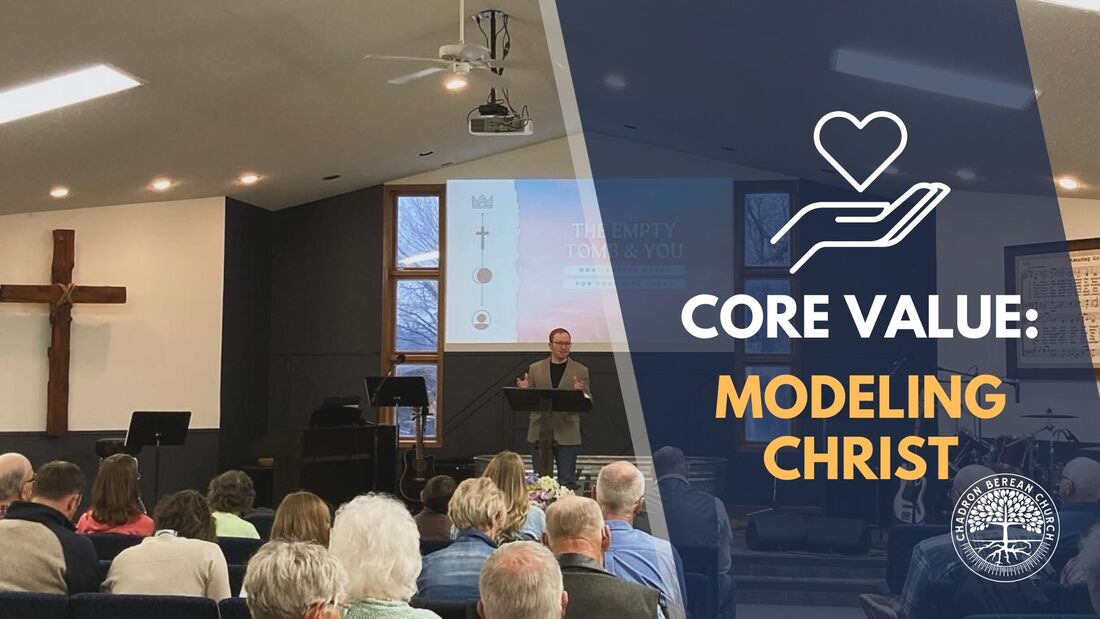

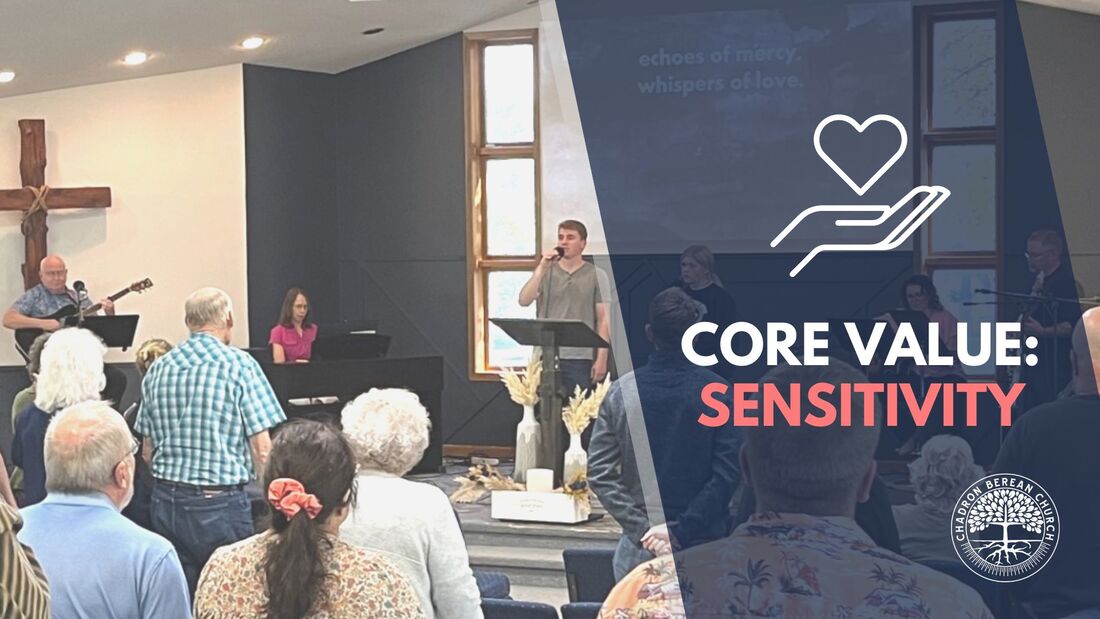
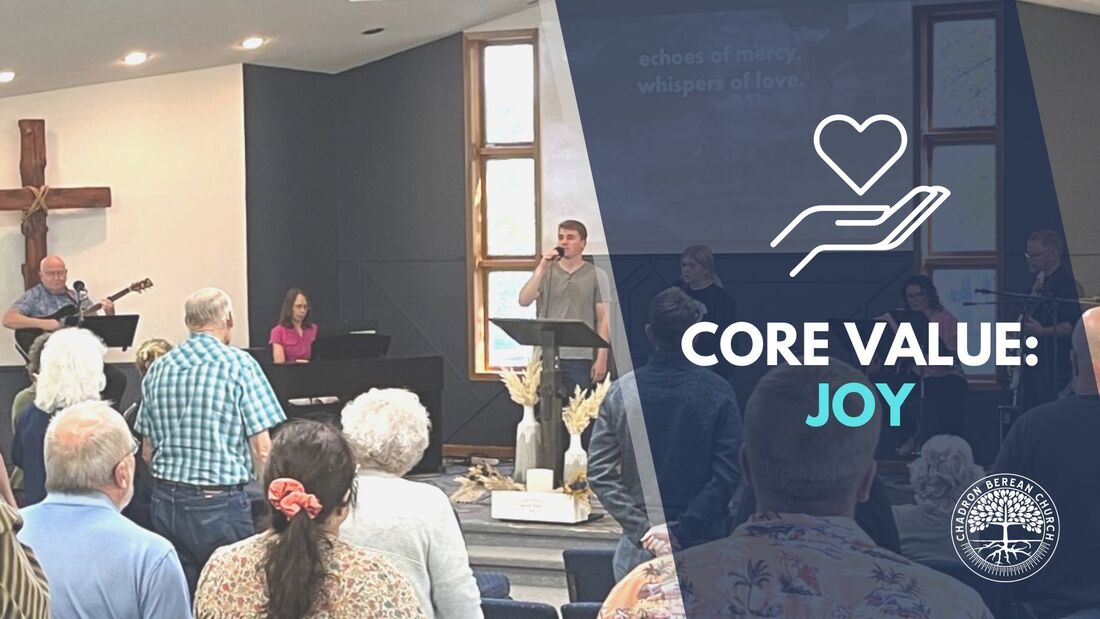



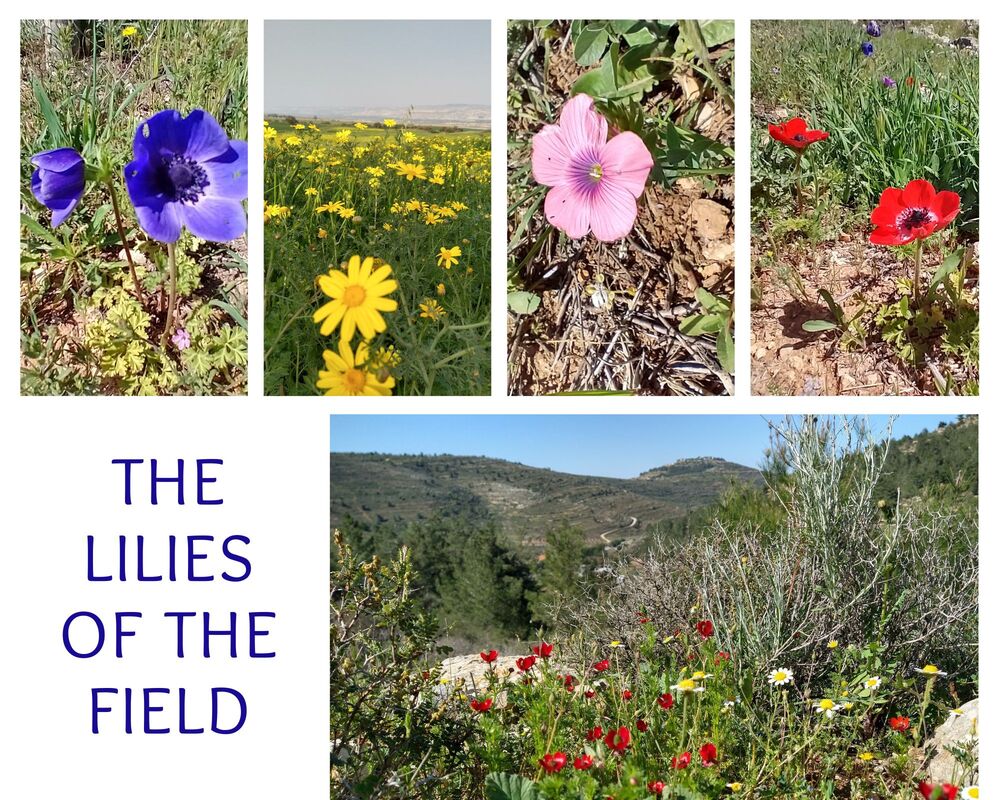
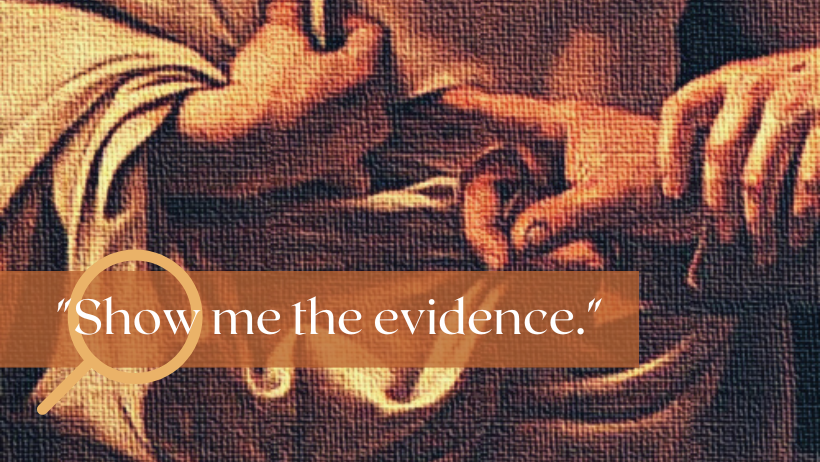
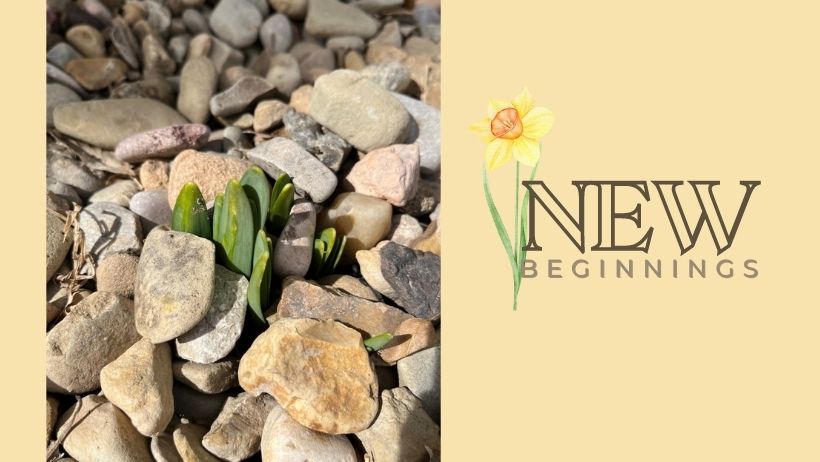
 RSS Feed
RSS Feed